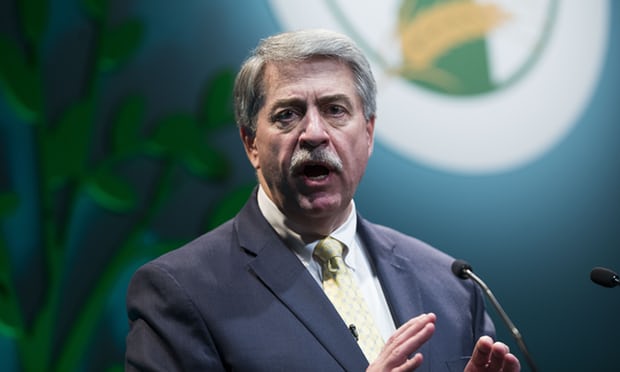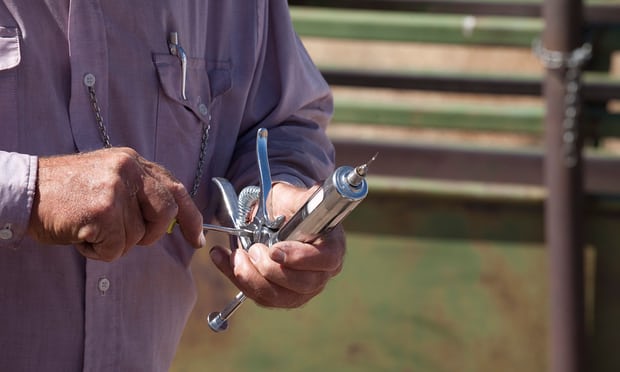The Guardian: Huge levels of antibiotic use in US farming revealed
by Fiona Harvey |Feb 8, 2018
Concerns raised over weakened regulations on imports in potential post-Brexit trade deals
Livestock raised for food in the US are dosed with five times as much antibiotic medicine as farm animals in the UK, new data has shown, raising questions about rules on meat imports under post-Brexit trade deals.
The difference in rates of dosage rises to at least nine times as much in the case of cattle raised for beef, and may be as high as 16 times the rate of dosage per cow in the UK. There is currently a ban on imports of American beef throughout Europe, owing mainly to the free use of growth hormones in the US.
Higher use of antibiotics, particularly those that are critical for human health – the medicines “of last resort”, which the World Health Organisation wants banned from use in animals – is associated with rising resistance to the drugs and the rapid evolution of “superbugs” that can kill or cause serious illness.
The contrast between rates of dosage in the US and the UK throws a new light on negotiations on Brexit, under which politicians are seeking to negotiate trade deals for the UK independently of the EU. Agriculture and food are key areas, particularly in trading with the US, which as part of any deal may insist on opening up the UK markets to imports that would be banned under EU rules.
When negotiating outside the EU for a new trade deal, the UK will come under severe pressure to allow such imports. Over the summer, a row broke out over the potential for imports of US chlorinated chicken – bleaching chicken, according to experts in the UK, is a dangerous practice because it can serve to disguise poor hygiene practices in the food chain.
But Ted McKinney, US under-secretary for trade and foreign agricultural affairs, told an audience of British farmers last month he was “sick and tired” of hearing British concerns about chlorinated chicken and US food standards, providing further indication that the US government is likely to strike a hard deal on agricultural products as part of any trade agreement.

Ted McKinney speaks at the Oxford Farming conference in January. Photograph: David Hartley/Rex/Shutterstock
Antibiotic resistance can spread rapidly among herds and flocks, but can also be spread through eating affected food products, according to the World Health Organisation.
Antibiotic use in the US is three times higher in chickens than it is in the UK, double that for pigs, and five times higher for turkeys, according to research by the Alliance to Save Our Antibiotics, a UK pressure group, which based its report on new data that has recently become available through industry groups and government.
Suzi Shingler, at the Alliance to Save Our Antibiotics, said: “US cattle farmers are massively overusing antibiotics. This finding shows the huge advantages of British beef, which is often from grass-reared animals, whereas US cattle are usually finished in intensive feedlots. Trade negotiators who may be tempted to lift the ban on US beef should not only be considering the impact of growth hormones, but also of antibiotic resistance due to rampant antibiotic use.”
Nearly three quarters of the total use of antibiotics worldwide is thought to be on animals rather than humans, which raises serious questions over intensive farming and the potential effects on antibiotic resistance, which can easily be spread to people. Once resistance takes hold and drugs become ineffective, treating even common diseases becomes problematic. Dame Sally Davies, England’s chief medical officer, has warned that antibiotic resistance is one of the most severe threats facing humanity, and if strong action is not taken urgently that even routine operations such as hip replacements may become too dangerous.
The contrast between the US and the UK in antibiotic use in livestock is in part owing to the efforts of British farming organisations and retailers to cut the use of such medicines. The move to do so has picked up pace in recent years, as the scale of the superbug crisis has become clearer. Peter Melchett, policy director at the Soil Association, said: “UK farmers have finally begun to cut their antibiotic use, and the government needs to be careful it does not undermine this process by allowing imports from countries that are not respecting UK and EU standards.”
